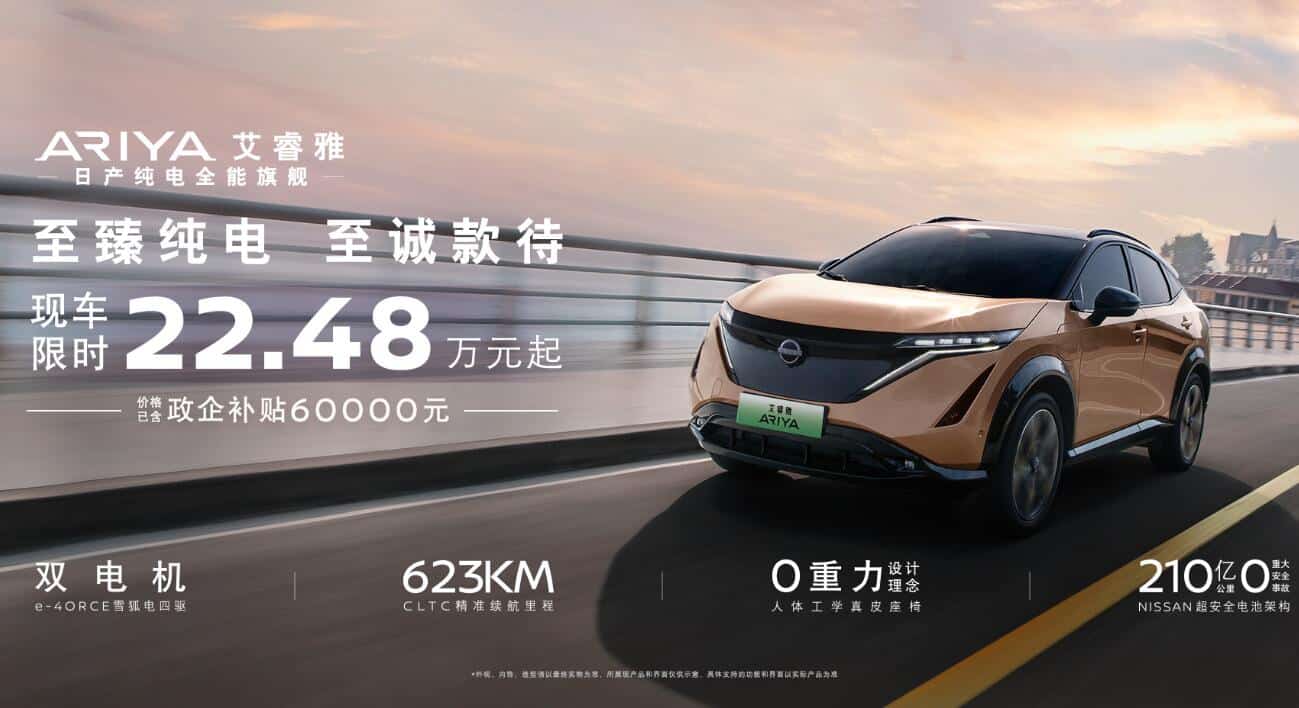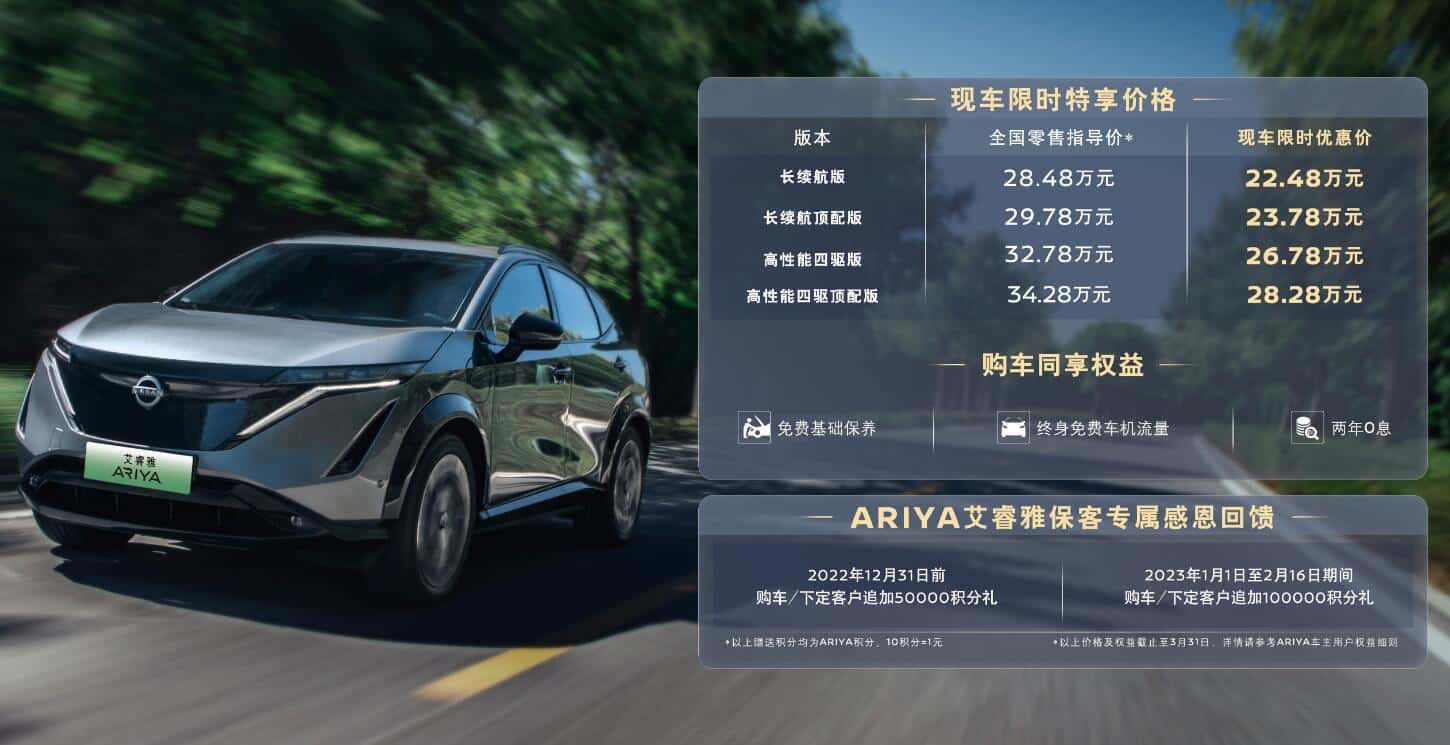The Nissan Ariva was officially launched in China on September 27, 2022, and Nissan said at the time that it was the first global model under its Nissan Next strategy.

To observe the dilemma Japanese automakers face in the Chinese EV market, recent moves by Nissan and Toyota are examples.
Nissan's flagship electric vehicle (EV) product in China, the Nissan Ariva, is currently being offered a limited-time discount of up to 60,000 yuan ($8,740), making it the latest Japanese car company after Toyota to offer significant discounts for EVs.
The front page of the website of Nissan's joint venture in China, Dongfeng Nissan, displays the information, showing the Nissan Ariva's latest starting price of RMB 224,800.
Nissan currently offers several all-electric models in China, including an all-electric version of its hot-selling internal combustion engine car, the Sylphy, though the Ariva is its highest-priced EV model here.
The Nissan Ariva is currently offered in four versions, including two single-motor versions as well as two dual-motor versions, all with starting prices reduced by RMB 60,000.
The starting price of the model's single-motor entry version has been reduced from RMB 284,800 to RMB 224,800, while the price of the higher-priced single-motor version has been reduced from RMB 297,800 to RMB 237,800.
The starting price for the two dual-motor models of the Nissan Ariva has been reduced from RMB 327,800 to RMB 267,800 and from RMB 342,800 to RMB 282,800 respectively.
Nissan is compensating consumers who previously purchased the car by offering a credit worth RMB 5,000 for consumers who bought the car before December 31, 2022, and RMB 10,000 for consumers who purchased the model between January 1 and February 16 of this year.
These benefits are valid from February 17 to March 31, according to the Dongfeng Nissan website.
The Ariva was officially launched in China on September 27, 2022, and Nissan said at the time that it was the first global model under its Nissan Next strategy.
The model's four variants started at RMB 272,800, 284,800, 327,800 and 342,800 at launch.
Notably, Nissan raised the price of the Ariva on January 4 in response to the end of the national subsidies for NEVs in China.
Nissan became the latest Japanese car company after Toyota to significantly lower the prices of EVs in China, after Tesla lowered the prices of all China-made models on January 6, which had a great impact on the Chinese EV industry.
On February 9 Toyota's joint venture in China, GAC Toyota, announced an RMB 30,000 price cut for the bZ4X electric SUV, bringing the starting price down from RMB 199,800 to RMB 169,800.
The model went on sale in China on October 10, 2022, and is the first GAC Toyota model based on the e-TNGA architecture.
Following GAC Toyota's price cut on the bZ4X, images circulating on Chinese social media show some FAW Toyota dealership stores lowering the model's price by RMB 60,000, bringing the starting price down to RMB 139,800.
Both Toyota and Nissan are Japanese automakers that made dazzling gains in China through joint ventures in the era of traditional internal combustion engine vehicles, but they have fallen significantly behind in that space as the EV era rapidly approaches.
In terms of retail sales, China's NEVs had a 25.7 percent penetration rate in January, up 8.7 percentage points from a 17 percent penetration rate in January 2022, but down from 29.5 percent in December, according to data released earlier this month by the China Passenger Car Association (CPCA).
The penetration rate of NEVs among local Chinese brands was 43.8 percent, compared to 21.4 percent for luxury brands and only 2.7 percent for mainstream joint venture brands.
Including passenger cars, light commercial vehicles and imported vehicles, Nissan sold 47,521 vehicles in China in January, down 64.4 percent from a year earlier, data released by the Japanese automaker on February 6 showed.
According to the CPCA, retail sales of all passenger vehicles in China fell 37.9 percent to 1.293 million units in January, down 40.4 percent from 2.17 million units in December.
($1 = RMB 6.867)
